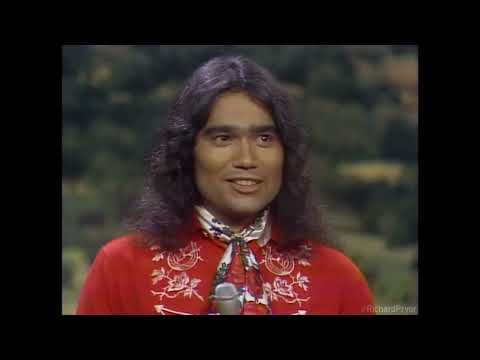Frühere Suchanfragen
Suchoptionen
#decolonization
One of the best #Indigenous #comedians - the legendary #CharlieHill R.I.P.
He was such a #trailblazer & inspiration for many native comedians who came after. RichardPryor recognized Charlie's talent & gave him a TV spotlight in the late 70s.
Charlie Hill Stand Up Comedy | The Richard Pryor Show | 1977 | NBC
https://m.youtube.com/watch?v=kFSoWpYjkzc
"Crepúsculo do Império. Portugal e as guerras de descolonização" foi coordenado por Pedro Aires Oliveira e João Vieira Borges e apresenta um grande estado da questão sobre os últimos anos do colonialismo português.
Terá nova sessão de apresentação a 3 de Abril, durante o congresso "Das Guerras ao Pós-25 de Abril: Os Militares em Territórios em Convulsão".
https://www.bertrandeditora.pt/produtos/ficha/crepusculo-do-imperio/29093855
3 kinds of Indigenous smudge medicines.
From top to bottom:
#BraidedSweetgrass
#WhiteSage
#Cedar
ELN: A Look Towards Africa
In Africa, tectonic movements of liberation and decolonization are again being felt. In the African Sahel, Burkina Faso, Mali, Niger, Chad and Senegal have expelled France permanently. On the continent, the pan–Africanist agenda of the 1960s is being revived. In November 2024, the historic “Conference in Solidarity with the Peoples of the Sahel” was held in Niger, organized by the Pan African Secretariat (PAT) and the Organization of the Peoples of West Africa (WAPO), under the slogan: “For anti–imperialist unity, peace and friendship among peoples.” PAT and WAPO are two great engines driving the pan–African liberation project. It is placed on the agenda in the revolutionary and national liberation movements of the world, calling us to a dialogue and coordination with this African libertarian reality. Malcolm X, on his trip to Africa (1964) having renounced the Nation of Islam, which preached black nationalism, discovered affinities and identities with revolutionary leaders, some of whom were not black, such as Ahmed Ben Bella of Algeria and Gamal Abdel Nasser of Egypt. By finding deeper identities with African revolutionary leaders, and not just with Black Africa, he further sharpened contradictions with the Nation of Islam leadership, especially Elijah Muhammed. Then Malcolm X would profess his identity and admiration for revolutionary leaders of Our America, such as Fidel Castro and Ché Guevara, questioning whether the strategic thing was “being black” or “being revolutionary.” This dilemma persists today for the Afro–Colombian movement, a powerful force for emancipation and transformation in Colombia, which has managed to significantly influence the nation’s political agenda. Certainly, the project of emancipation in America is inconceivable and becomes unviable without black and indigenous liberation. That is why we should turn our gaze to Africa. However, on France’s two visits to Africa, he failed to engage in dialogue with the ongoing African liberation organizations and processes. In Ghana he met with the president who openly promotes the conspiracy against the countries of the African Sahel. He also appeared at a press conference with an Ashanti chieftain, notorious in Ghana for his corruption and starring in politics. Socialist revolutionaries in Ghana watched with sadness that a black leader from Latin America, from a left–wing party, showed no affinity with the African left. Black identity and the struggle against structural racism is and has been a key point in the unity building of the African American diaspora. It has been a 500-year struggle, fraught with unimaginable sacrifice and suffering. Black identity against the systemic racism of the white and mixed world is legitimate and necessary. The difficulty lies in the fact that black identity is not the epicenter of the liberation project in Africa, but the decolonization, the confrontation with imperialism and the revolutionary transformation of its societies.Africa is not a monolithic continent; there are pro–imperialists and anti–imperialists, as well as left and right; also exploitative bourgeois and exploited workers. These factors are decisive in the African liberation struggle. At COP 16, held in November 2024 in Cali, there was a clear misunderstanding between the Afro–Colombian movement and the delegates from African countries, precisely for that reason: black identity is not decisive in the African struggle, as it is taken in the struggles of our America. Here emerges the debate and tensions that have existed between identity struggles and revolutionary struggles, where the latter focus on class identity, between exploited versus exploiter. The unity of class and the unity of identity need not quarrel, for there are multiple points of encounter. The meeting of the two in a strategic project of emancipation is vital to achieve the revolutionary transformation we desire. The black and the Indian in the Petro government are interesting topics for a current debate. Comandante Antonio García Source: ELN VocesThis is how I feel. I am not a democrat, liberal, socialist or any other colonial political or economic design.
#LandBack to me means exactly that - LandBack to the Native Nations. #Decolonization means LandBack and full non-custodial Native Nation #Sovereignty - which is a win-win for everyone in reality.
Colonial systems, different or new politicians and even eternal voting will never fix or reform colonial systems. It is designed that way.
#Native #Indigenous
We've opened a call for papers for the workshop "Contested Imperial Endings", seeking to encourage a comparative discussion on dissolution of several European empires, with a greater emphasis on those which unravelled in the aftermath of post-1945 European decolonization.
https://ihc.fcsh.unl.pt/en/events/contested-imperial-endings/
The #TRANSMAT project culminated last week with the conference ‘Decolonising Museums and Colonial Collections. Towards a Transdisciplinary Agenda and Methods’ and the opening of the exhibition ‘Facing the Colonial Legacy in the Museum’, both hosted by the Santos Rocha Municipal Museum in #FigueiraDaFoz.
We tell you more here: https://ihc.fcsh.unl.pt/transmat-conferencia-exposicao/
The early cross cultural marriages between Chinese men & Indigenous women occurred more often back in the gold rush & railroad building days because Canada had the head tax on Chinese people & also it was mostly men allowed to come here to work. There were very few Chinese women allowed to come into Canada. The Chinese men worked for basically colonial slave wages, like Indigenous workers - both were paid far less, for same work, as their white coworkers.
This week, the #TRANSMAT team moves to Figueira da Foz for the international conference ‘Decolonizing Museums and Colonial Collections. Towards a Transdisciplinary Agenda and Methods’.
The programme includes keynote speakers Meryem Korun, Mark Thurner, David William Aparecido Ribeiro, and Marta Lourenço.
https://ihc.fcsh.unl.pt/en/events/decolonizing-museums-colonial-collections/
Sitting & waiting to sign some documents & then can get out of this place, full of unmasked plague spreaders - at least for a few hours until I can bring my client her new air filtration unit.
As I'm waiting, am reading up more on how to make reef balls out of broken seashells. Getting ahead on some research that will help me to help better with several projects along our coasts to restore Indigenous shellfish gardens & utilize the nature engineering powers of bivalves to restore some ocean ecosystems that were destroyed by acts of greed fueled colonialism.
Support #IndependentMedia bases in #BritishColumbia #Canada
I've been an annual subscriber of #WatershedSentinel for a few years & love receiving each magazine issue. Full of journalism that's relevant to my #environmental & #decolonization interests.
https://watershedsentinel.ca/
Published in #Comox on #VancouverIsland.
Please consider subscribing or donating to this #BCIndieMedia outlet.
A Mardi Gras offering~
Video by Andrew Sage of Andrewism Carnival and Class Struggle
On yootoob via duckplsyer
duck://player/x4nDNeKotgA
#BostonReview book talk
#SamKlug in conversation about his book #TheInternalColony with Prof. Chad Williams
"Klug reveals the central but underappreciated importance of global #decolonization to the divergence between mainstream liberalism and the #BlackFreedomMovement in postwar America."
#BlackHistory #UShistory #BlackHistoryMonth #BlackLiberation #internalColonization #CivilRights #racialCapitalism #decolonialStruggles #books @bookstodon @histodons
As candidaturas para a Bolsa de Investigação para Licenciado/a para integrar a equipa do projecto #DecTil — "Examinar a descolonização de Timor-Leste, 1974-82: o Relatório Riscado", financiado pela FCT, decorrem até 5 de Março.
We’ve officially hit 25% of our goal for A Red Road to the West Bank!
A huge thank you to everyone who has supported, shared, and stood in solidarity with this project. This film is about connecting Indigenous struggles across continents, and every contribution helps us bring this story to life.
Let’s keep the momentum going—we’re just getting started!
Support & share: https://amplifierfilms.ca/redroad
#RedRoadToTheWestBank #IndigenousSolidarity #Decolonization #FreePalestine #AIM #Mohawk #KeepItGoing
WikiAfrica Hour – De-colonising knowledge on Wikipedia
Feb 26 @ 16:00 UTC
https://bit.ly/OEW25Calendar
In February, WikiAfrica Hour is diving deep into decolonising knowledge with guest host Achal Prabhala, who will lead a panel experienced in disrupting the information landscape.
Hosts – #WikiInAfrica #WikiAfrica
Leonard Peltier’s release after 49 years of wrongful imprisonment resonates deeply within anti-colonial struggles, particularly when compared to the systematic incarceration of Palestinians under Israeli military rule. Both cases exemplify how settler-colonial states use imprisonment as a tool of repression against Indigenous resistance.
Peltier, an Anishinaabe-Lakota activist and member of the American Indian Movement (AIM), was convicted in 1977 for the killing of two FBI agents during a 1975 shootout on the Pine Ridge Reservation. His trial was riddled with misconduct, including fabricated evidence, coerced witnesses, and prosecutorial misconduct. The U.S. government made him a political prisoner, punishing him not for any proven crime, but for his role in defending Indigenous sovereignty. His nearly five decades behind bars symbolize the criminalization of Indigenous resistance in North America.
Similarly, Israel systematically imprisons Palestinians, especially those engaged in resistance against occupation. Since 1967, over 800,000 Palestinians—including activists, political leaders, and children—have been detained under military rule. Many are held without charge under "administrative detention," a practice that allows indefinite imprisonment without trial. Just as Peltier was targeted for his role in AIM, Palestinians are arrested for organizing protests, resisting land seizures, or even posting anti-occupation statements online.
Both cases highlight how settler-colonial powers use incarceration to neutralize Indigenous movements. The U.S. government sought to break AIM through the imprisonment of Peltier, just as Israel aims to weaken Palestinian resistance by jailing its leaders and youth. The goal in both cases is not justice, but deterrence—turning prisons into tools of colonial control.
Yet, despite decades of imprisonment, neither Peltier nor Palestinian political prisoners have been silenced. Their struggles continue to inspire movements for decolonization, Indigenous sovereignty, and global solidarity against settler oppression. This is exactly what we seek to unpack in A Red Road to the West Bank—the shared tools of repression used by colonial states and the enduring spirit of resistance that connects Indigenous struggles across continents.
Learn more at: www.redroadtothewestbank.com
Our 2nd group of calls to hire four Assistant Researchers under the #FCTTenure programme ends on 24 February:
2023.11076.TENURE.199: #Migrations and #Globalization in Historical Perspective
2023.11076.TENURE.200: #Colonialism, #AntiColonialism, #Decolonization
2023.11076.TENURE.203: #SocialMovements, State and #Capitalism in #ContemporaryHistory
2023.11076.TENURE.259: History, specialising in #memory and #heritage






